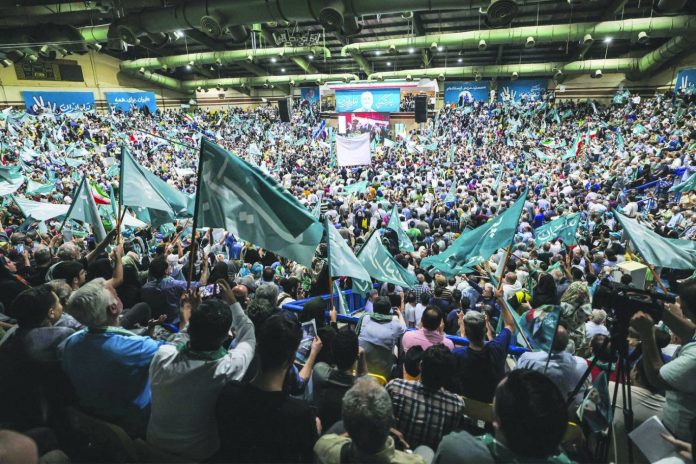Iranians are choosing a president in Friday’s election after the death of Ebrahim Raisi in a helicopter crash last month, according to Iranian media.
Since Iran’s supreme leader Ali Khamenei is now 85 years old, it is likely that the next president will be heavily involved in the possible process of choosing Khamenei’s successor.
The election coincides with increased Western pressure on Iran over its rapidly developing nuclear programme and growing internal divisions over political, social, and economic crises.
The Guardian Council, an uncompromising body that screens clerics and jurists, has approved five hardliners and one moderate candidate from an initial pool of 80. Prominent among the hardliners are Mohammad Baqer Qalibaf, parliamentary speaker and former head of the powerful Revolutionary Guards, and Saeed Jalili, a former nuclear negotiator.
Massoud Pezeshkian, the only moderate candidate, has the support of Iran’s politically alienated reformist camp. Khamenei, however, has not publicly endorsed any candidate. Nevertheless, his adviser Yahya Rahim Safavi urged voters to elect “a president whose views do not conflict with those of the supreme leader.”
The people should choose a president who considers himself the second in command … The president should not create division.
Although the role of the president has high international prestige, the real power lies with the supreme leader, who has the final say on matters of state, such as foreign or nuclear policy. He also controls all branches of government, the military, media and most financial resources.
Presidential race
Raisi was widely seen as a potential successor to Khamenei, but his sudden death triggered a race among hardliners seeking to influence the choice of Iran’s next leader.
The electoral strength of the reformists remains uncertain, as some voters believe they failed to secure greater freedoms during their past time in power. The riots sparked by the death of Mahsa Amini, a young Kurdish woman in custody in 2022, exposed the growing division between the reformists and their core after their leaders distanced themselves from demonstrators demanding “regime change.”
If no candidate wins at least 50 per cent plus one vote of all ballots cast, including blank votes, there will be a run-off between the top two candidates.
